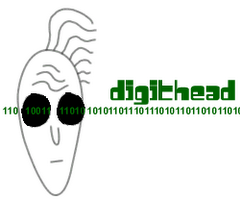
Welcome to the new decade: Java is a restricted platform, Google is evil, Apple is a monopoly and Microsoft are the underdogs
I mostly try to ignore tech industry gossip. But, there's a lot of it, lately. And underlying the shenanigans are big changes in the computing landscape.
First, there's the flurry of lawsuits. This is illustrated nicely by the Economist in The great patent battle. There are several similar graphs of the patent thicket floating around. IP law is increasingly being used as a tool to lock customers in and competitors out. We can expect the (sarcastically named) "Citizens United" ruling on campaign finance to result in more of this particular kind of antisocial behavior.
Google and Facebook are in a pitched battle over your personal data and engineering talent. Google engineers, apparently, are trying to jump over to Facebook prior to what promises to be a huge IPO.
Apple caused quite a kerfuffle by deprecating Java on Mac OS X. After remaining ominously silent for weeks, Oracle seems to have lined up both Apple and IBM behind OpenJDK. Apache Harmony looks to be a casualty of this maneuvering. Harmony, probably not coincidentally, is the basis for parts of Google's Android and Oracle is suing Google over Android's use of Java technology.
Microsoft seems to be waning in importance along with the desktop in general. Ray Ozzie, Chief Architect since 2005, announced that he was leaving, following Robbie Bach of the XBox division and Stephen Elop, now running Nokia. I spoke with one MS marketing guy who said of Ozzie, "Lost him? I'd say we got rid of him!" A lesser noticed departure, that of Jython and Iron Python creator Jim Hugunin may also be telling. Profitable stagnation seems to be the game plan there.
Adobe's been struggling to the point where the NYTimes asked where does Adobe go from here? They took a beating over flash performance and rumors circulated briefly of a buyout by Microsoft.
The cloud is where a lot of the action in software development is moving. Mobile has been growing in importance by leaps and bounds ever since the launch of the iPhone. Cloud computing and consumer devices like smart phones, tablets, and even Kindles are complementary to a certain extent. The economics of cloud computing are hard to argue with. (See James Hamilton's slides and video on data centers.)
Another part of what's changing is a swing of the pendulum away from openness and back towards the walled gardens that most of us thought were left behind in the ashes of Compuserve and AOL. Ironically enough, Apple has become the poster child of walled gardens, with iTunes and the app store. ...the mobile carriers even more so. And the cloud infrastructures of both Microsoft's Azure and (to a lesser degree) Google's App Engine are proprietary. Out of the big 3, Amazon's EC2 is, by far, the most open. Mark Zuckerberg says, "I’m trying to make the world a more open place." But, to Tim Berners-Lee, Facebook and Apple threaten the internet.
There's plenty of money in serving the bulk population. That's why Walmart is so huge. My fear is that in a rush to provide "sugar water" to consumers, the computing industry will neglect the creative people that made the industry so vibrant. But, not to worry. Ray Ozzie's essay Dawn of a new Day does a nice job of putting into perspective the embarrassment of riches that technology has yielded. We're just at the beginning of figuring out what to do with it all.








 R Bloggers
R Bloggers
No comments:
Post a Comment